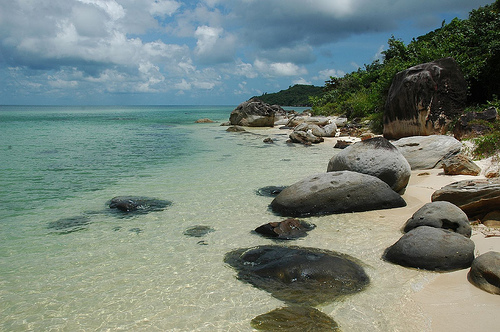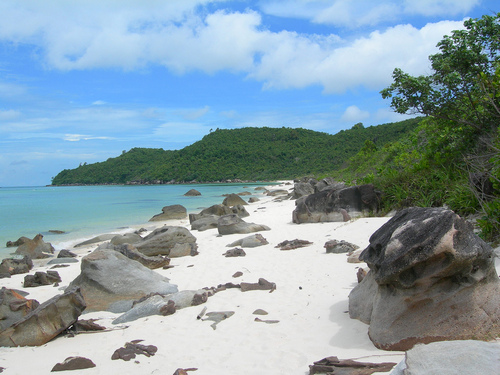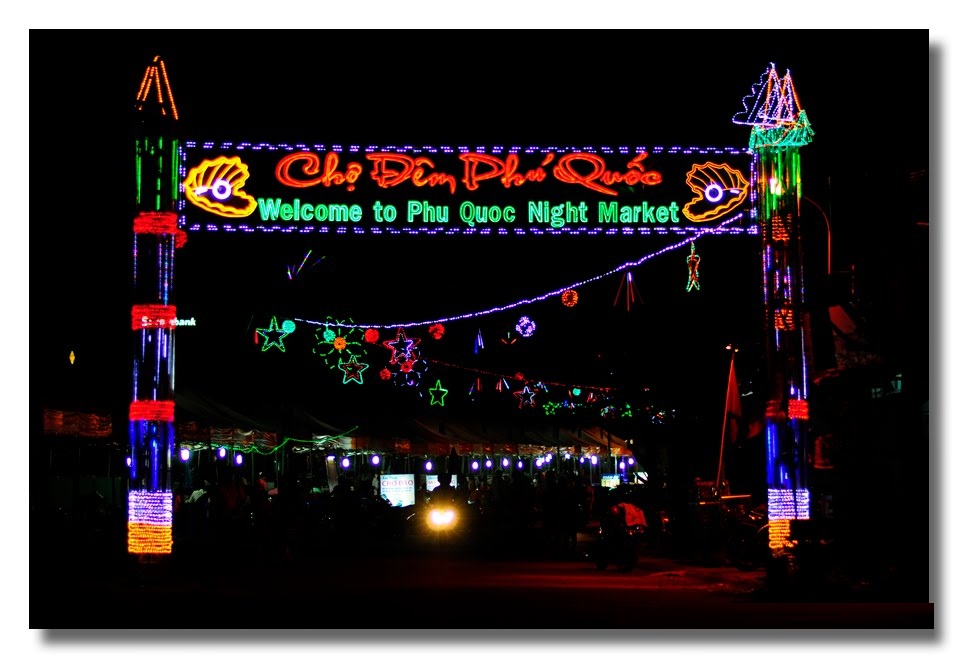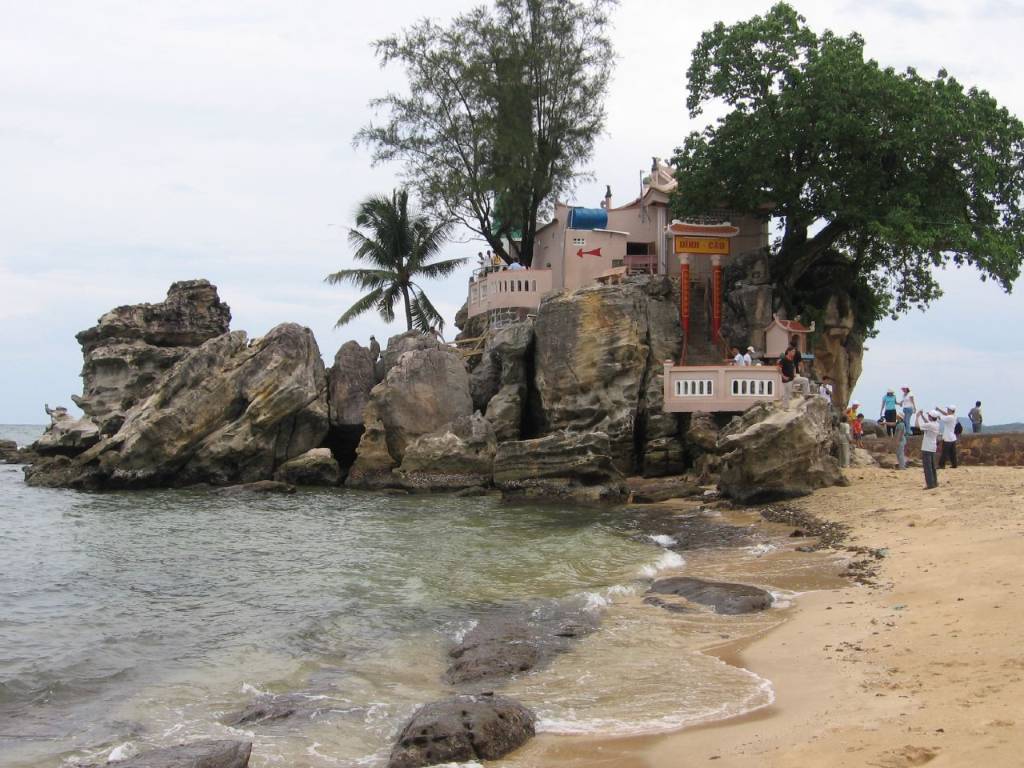Diving and snorkelling around the warm waters of Phu Quoc takes place on the the North-Western side of the island or around the small archipelago to the South. Diving is accessible all year round and the best location for diving truly depends on the prevailing conditions. Due to the Islands proximity to the Mekong delta region peak season visibility is rarely that of the Eastern seaboard of Vietnam. However the nutritious run off from the Mekong and the constantly warm water temperatures give Phu Quoc the best hard coral growth in all of Vietnam. About Phu Quoc Island… Phú Quốc, is the largest island in Vietnam. The district seat, Dương Đông, is located on the west coast, and is also the largest town on the island. The economy is centered around fishing, agriculture and tourism which has grown significantly on the Island over the past few years and visitors can now choose between five-star resorts and rustic family-run bungalows. Here are some things to do or visit in Phu Quoc Island… South of the island | 
Clean and clear water on Sao Beach | 
The beautiful Sao Beach | The Fishing Village at Ham Ninh Ham Ninh fishing community is located to the east of the island. Mountains and forests form a dramatic backdrop to the village. Houses here retain their traditional features with cottage roofs and bamboo wattles. The community makes its living from pearl diving, catching holothurians and netting crabs. An Thoi Islands & Town, Port An Thoi is the second largest town on the Island and a stopping off point to charter a boat to visit the An Thoi Islands to the south for a day of fishing, swimming and snorkeling. Sao Beach Situated along the southeastern coast, with soft white powder sand, Sao Beach is probably one of the most beautiful beaches on the Island Pearl Farm On an isolated stretch of Long Beach, Phu Quoc Pearl Farm is an essential stop if you’re shopping for pearls. The small farm shop sells pearl necklaces and earrings as well as providing information on the oyster and pearl industry. Coconut Tree Prison One of Phu Quoc’s historical sites, Coconut Tree Prison, located to the north of An Thoi Town, is still partially in use. The prison was built by the French Colonial Administration before World War II and was taken over by the Americans during the Vietnamese War. The War Memorial is close to Coconut Tree Prison and is a heritage site. Center of the island | 
Night market | 
Dinh Cau Temple | Dinh Cau Rock (Cau Temple) One of the many attractions in Phu Quoc is Dinh Cau Rock, or Cau Temple, which is both a temple and light house. Built in 1937, it was dedicated to Thien Hau who provides protection for the fishermen and vessels that head out to the open waters every day. From the temple you can experience beautiful sunset views and watch the fishing boats return through the harbor entrance. Da Ban Stream Da Ban stream, which rises from the island’s mountains and flows down over huge stone slabs, is a site of great natural beauty. Serene, with cooler weather than other parts of the island it is a must for nature lovers. Night Market At the night market you can enjoy cheap and fresh local seafood as well as shopping for souvenirs, handicrafts and gifts from the Island
Fish Sauce Factory Love it or hate it, fish sauce is one of the most characteristic tastes and smells of South East Asia. The Fish Sauce Factory of Nuoc Mam Hung Thanhis is the largest of Phu Quoc’s fish-sauce makers. Most of the sauce produced is exported to the mainland, although a surprising amount makes its way to kitchens around the world. Pepper Firm (Everywhere in the Island) The principle crop on Phu Quoc is black pepper, rather than the rice of many of its neighbors. It produces the highest quality black pepper, with pepper producers located around the central and northern parts of the island. Vietnam is a leading global exporter for black pepper in Asia, and tourists are able to visit Pepper producers all year round North of the island CuaCan Beach North of Duong Duong is the picturesque village of Cua Can which has a variety of old wooden bridges passable only on foot or by motorbike. While the village is fairly small, it does have a couple of places to relax for a roadside drink before heading on to the secluded beaches to the north of the island.
National Park Covering close to 70% of the island, Phu Quoc National Park was established by the Government in 2001. Located to the north and sharing its boundaries with the northern & eastern coastline, it’s an area of outstanding natural beauty and bio-diversity. The park has an abundance of species of plants and several types of coral reefs as well as streams; the most sizable being the Rach Cua Can river which flows into the Gulf of Thailand on the West Coast of the Island, just north of Cua Can Village Tranh Stream Tranh Stream – whose name means ‘the stream with its painting-like beauty’, is another of the island’s peaceful scenic spots | 
